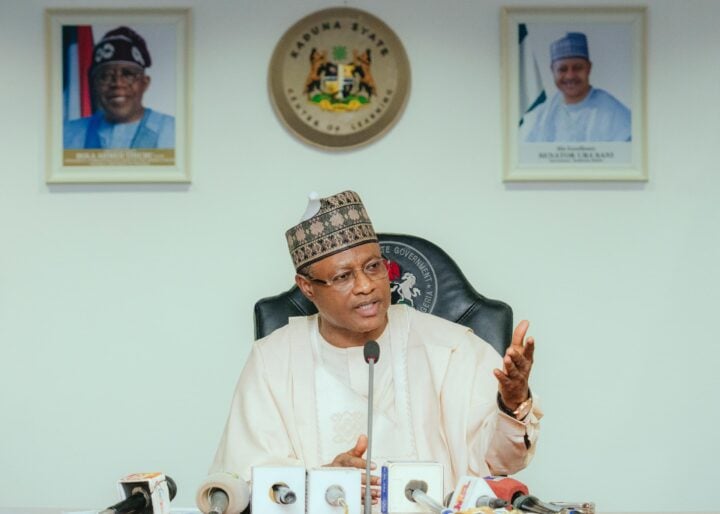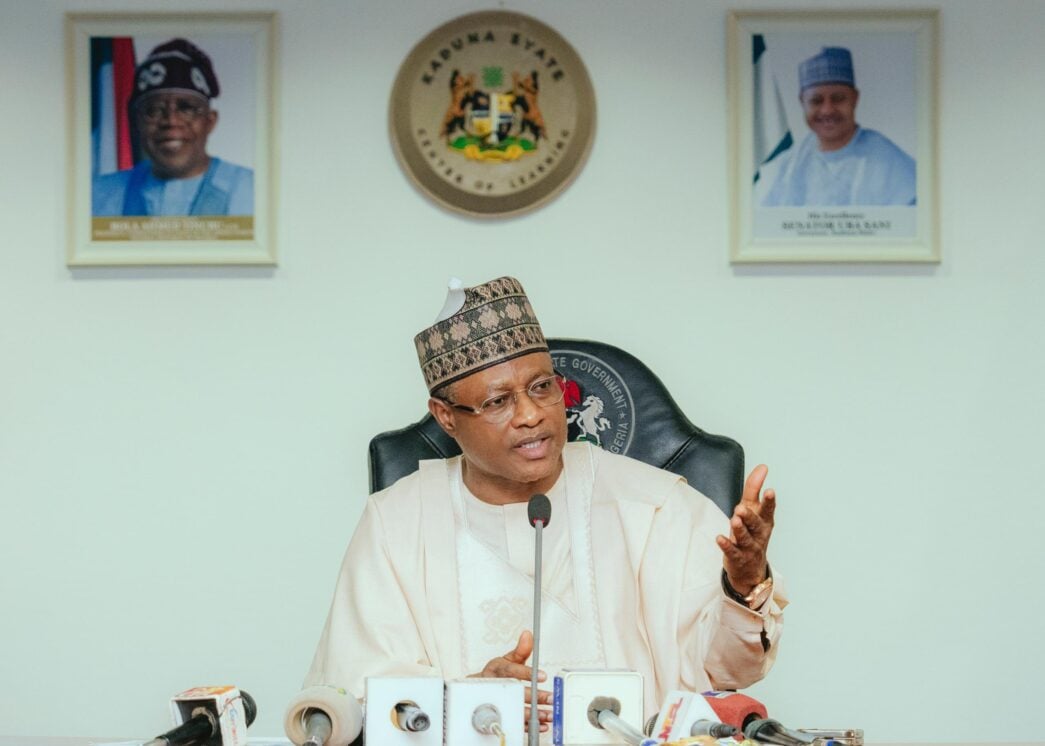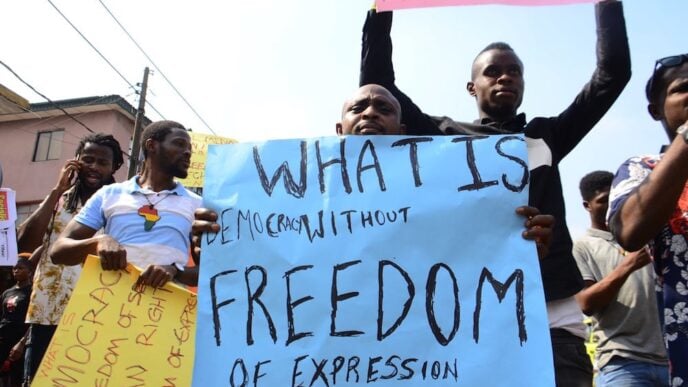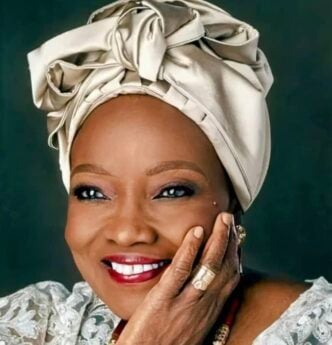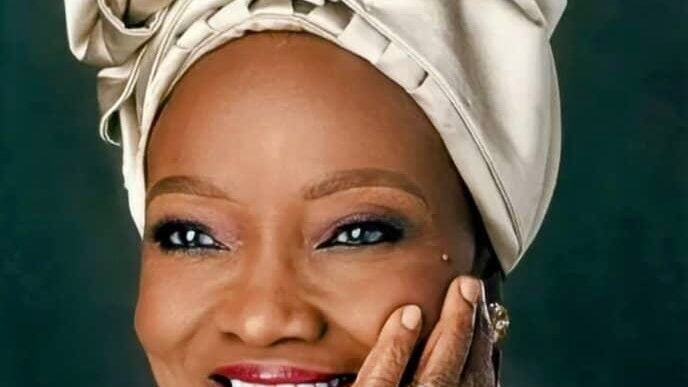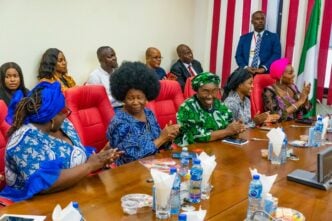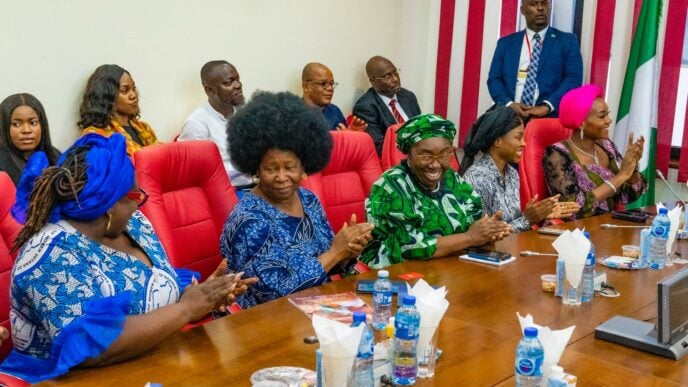BY HENRY UGBOLUE
The June 12, 1993 presidential election remains one of the most poignant chapters in Nigeria’s democratic history. It was not merely an election — it was a referendum on justice, unity, and the people’s right to determine their future. Nigerians, across ethnic and religious divides, defied cynicism and cast their votes overwhelmingly for Chief Moshood Kashimawo Olawale (M.K.O.) Abiola of the Social Democratic Party (SDP). Abiola’s campaign, “Hope ’93,” was a national movement for equity, prosperity, and dignity — a moment where the Nigerian spirit found its voice.
Yet, that collective voice was silenced when the military regime of General Ibrahim Babangida annulled the election. This act of authoritarian suppression ignited a storm of resistance across the nation, birthing a generation of democracy advocates who risked everything to defend the people’s mandate. Among those brave patriots was a young Uba Sani from Kaduna — a name now indelibly etched into both the story of Nigeria’s democratic evolution and its current renaissance in purposeful governance.
Uba Sani’s role in the June 12 pro-democracy movement is both profound and sometimes underappreciated. As a passionate activist aligned with the Campaign for Democracy (CD) and the Joint Action Committee of Nigeria (JACON), he was instrumental in challenging the perception that the struggle to reclaim Abiola’s mandate was a sectional affair. Operating from northern Nigeria — a region often seen as monolithic in its political leanings — Uba Sani defied stereotypes and built bridges between northern activists and their southern counterparts.
Advertisement
His activism was more than symbolic. It involved real risks — arrests, harassment, detention — all for daring to demand that Nigeria honour its commitment to democracy. Alongside allies such as Shehu Sani (who was imprisoned for his activism), and northern leaders like the late Mallam Balarabe Musa and Col. Dangiwa Umar, Uba Sani carried the torch of June 12 with clarity, conviction, and courage.
June 12 shaped Uba Sani. It was a political and moral crucible in which he learned to view governance not as a tool for dominance, but as a platform for service. Today, as Governor of Kaduna State, his administration embodies the principles for which Abiola stood: inclusivity, equity, justice, and economic liberation.
When Senator Uba Sani assumed office as Governor of Kaduna State on May 29, 2023, the weight of history seemed to converge on him. The state was grappling with multiple afflictions — sectarian tensions, entrenched poverty, infrastructural decay, insecurity, and mass exclusion from financial services. In just two years, Governor Uba Sani has spearheaded what many now describe as a “Kaduna Renaissance.”
Advertisement
This renaissance is not defined by headlines, slogans, or political grandstanding. Rather, it is a deeply strategic, people-centered transformation that draws from his activist roots and his unflinching commitment to democratic ideals.
One of the most revolutionary aspects of Governor Uba Sani’s leadership is his refusal to politicise governance. This is a man who believes governance is sacred — a trust bestowed not just by voters, but by the weight of history. As he has repeatedly explained, “From Day One, I made it clear that we must relegate politics and focus on governance.” This rare ethos has yielded remarkable results: peace across political divides, mass defections from the opposition based not on coercion, but confidence in leadership, and a unified political landscape once deeply fragmented.
Shaped by several years of civil rights activism, especially the June 12 struggle, Uba Sani views security as not just merely about arms and patrols. He insists that security is about addressing root causes: poverty, illiteracy, and alienation. In his words, “We are reversing the ugly trend of hopelessness and lack of economic prosperity.”
From this perspective, his administration developed a dual-pronged approach: kinetic operations against criminal elements, paired with the non-kinetic extensive community-led peacebuilding to reclaim Kaduna’s social fabric from the brink of collapse. The effects have been tangible. Violence-ravaged zones like Birnin Gwari have returned to economic productivity, with commerce reviving in previously shuttered markets.
Advertisement
With improved security came bold infrastructural development especially in hitherto underserved and unreached rural communities. Uba Sani views roads, bridges, and transport as instruments of justice — ways to bring opportunity to the most neglected corners of society. This effort aims to enhance urban mobility and connect rural areas to economic hubs.
This commitment to connectivity echoes Abiola’s vision of inclusivity — of a Nigeria where no region is left behind, and where development is not a privilege, but a right.
Governor Sani’s education reforms mirror the egalitarianism that defined the June 12 movement. He has drastically reduced tuition fees, invested in learning infrastructure, and prioritized teacher training. “Kaduna was number 12 in WAEC rankings. Now we are number 7 — and rising,” he said. His target is excellence, but his method is equity.
In healthcare, the transformation is just as dramatic. Under his leadership, 250 primary health centers have been upgraded to level two — the highest by any state in Nigeria. The conversion of Kafanchan General Hospital to a Federal Medical Centre is both a functional upgrade and a testament to federal confidence in Kaduna’s health sector.
Advertisement
Uba Sani’s most radical reforms may lie in his economic justice agenda. He speaks passionately about the exclusion of over 85% of Northwestern Nigerians from financial systems as of 2023. “We must look at ourselves in the mirror and apologize to the people of Northern Nigeria,” he declared — a moment of rare political introspection.
But Uba Sani is not content with apologies. His administration has rolled out aggressive financial inclusion programmes targeting rural women, youth, and MSMEs. The Kaduna Enterprise Development Agency (KADEDA) now supports entrepreneurs with grants, training, and low-interest loans. In just two years, these efforts have created jobs, unlocked potential, and begun to correct long-standing economic imbalances.
Advertisement
Transparency is a cornerstone of the Uba Sani Renaissance. Procurement has been digitized, budgeting processes opened, and Kaduna has become a magnet for foreign direct investment in agro-processing, logistics, and infrastructure.
This reflects the moral foundations instilled in him during the pro-democracy struggles of the 1990s. Like M.K.O. Abiola, Uba Sani believes that poverty is not inevitable — it is a policy choice, one that can be reversed with courage, integrity, and people-first policies.
Advertisement
His philosophy of leadership: quiet, intentional, and resolute, is perhaps best summarized in his refusal to be distracted by the politics of 2027. “Leadership is about lifting others,” he maintains. And through every kilometer of road, every revitalized school, every empowered entrepreneur, he is doing just that.
Two years into his tenure, Uba Sani has proven that the sacrifices of June 12 were not in vain. His journey from street protester to state governor is a moral arc that bends toward justice, much like that envisioned by Abiola himself. He has taken the ideals of that struggle — unity, dignity, equity — and translated them into living, breathing governance.
Advertisement
Kaduna State is now a reference point for purposeful leadership in Nigeria. It is a laboratory for what is possible when political ideology meets social vision, and when democratic values are lived, not merely preached.
In many ways, the story of Uba Sani is the continuing story of June 12. It is the saga of a country that, though battered by cynicism, still dares to dream. It is the chronicle of a man who, shaped in the fires of struggle, now shapes the future of his people.
Interestingly, Governor Uba Sani sees in President Bola Ahmed Tinubu a kindred spirit, not just in the struggle for the actualization of the June 12 mandate of Chief Moshood Abiola but in renewed hope in what is possible in today’s Nigeria. Governor Uba Sani believes that like M.K.O Abiola, President Bola Ahmed Tinubu’s leadership is speedily healing Nigeria and truly renewing the hopes of the people. Uba Sani stands as both a bridge to our past and a blueprint for our future. The spirit of June 12 lives on, not just in memory, but in motion, in the renewed streets of Kaduna, in the hope of its youth, and in the work of a Governor who knows that leadership is service, and service is destiny.
Henry Ugbolue is a media and communication professional.
Views expressed by contributors are strictly personal and not of TheCable.
